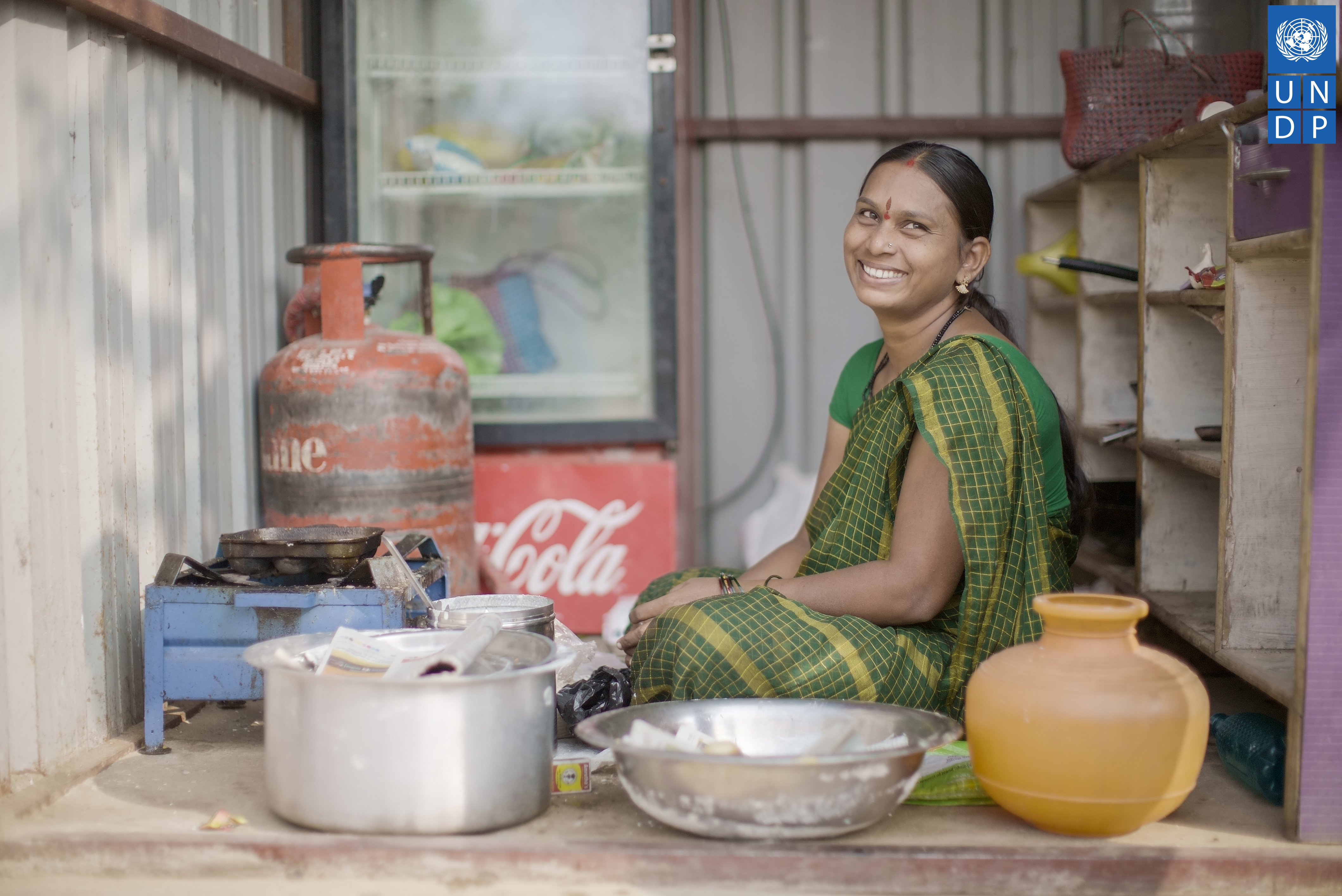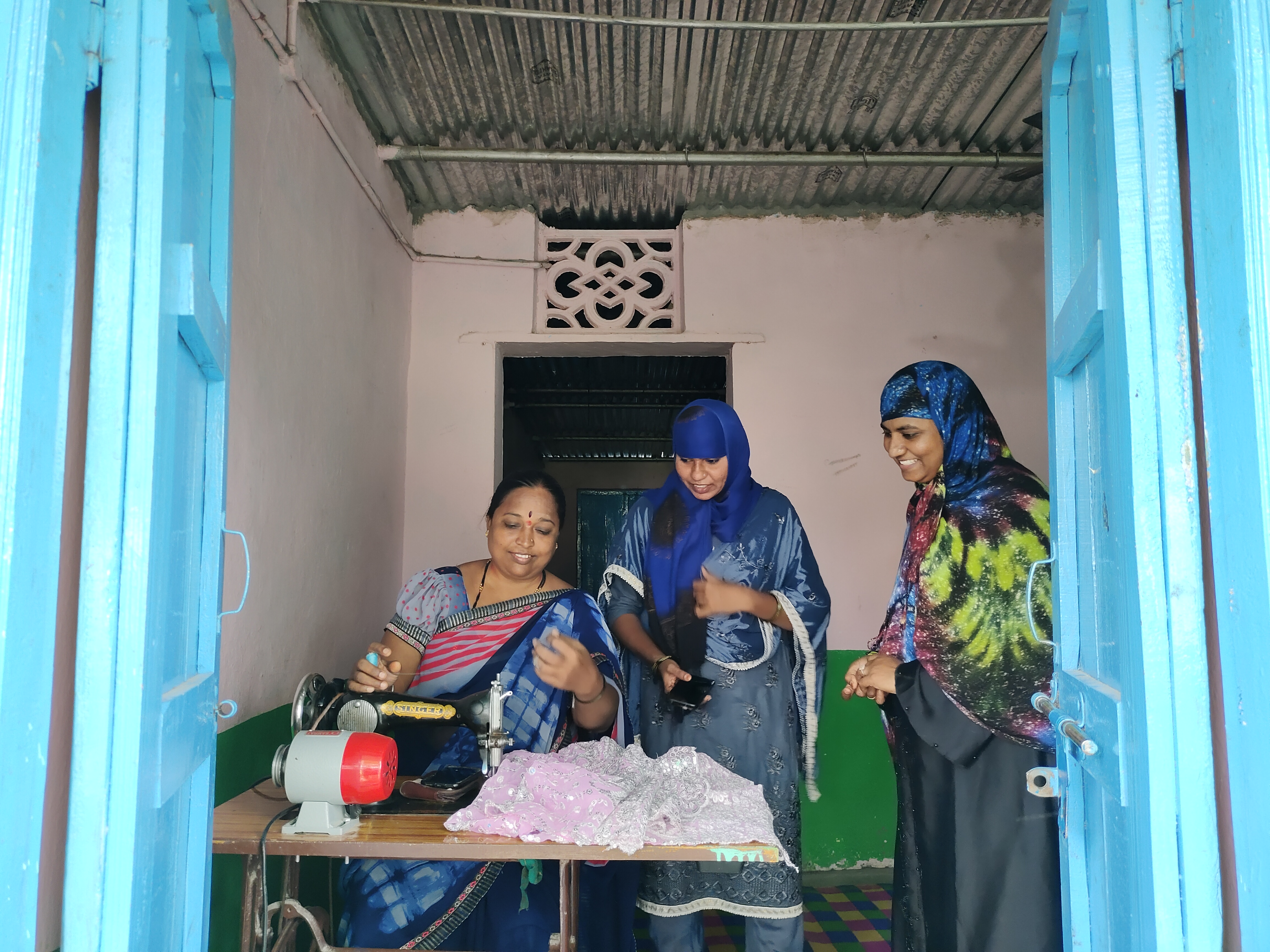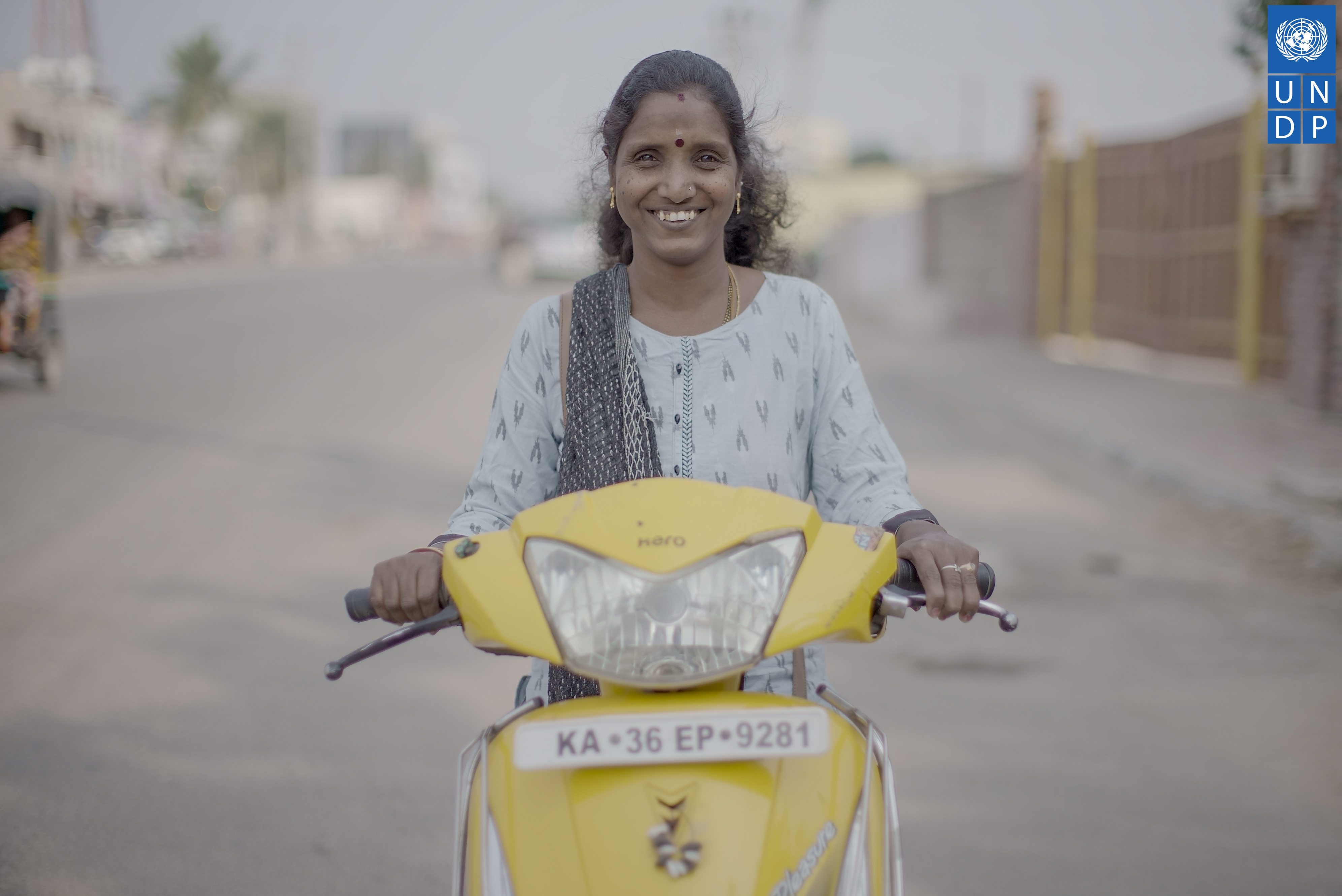UNDP India and SAP Labs India have been working together to boost entrepreneurship and youth innovation under its project, Code Unnati.
When women mean business, everybody profits
December 10, 2022

Taiyamma believes nobody can be poor once they are aware of their options.
Rabiya begum was only 15 when she was forced to marry. By the time she turned 25, she was a mother of three. Rabiya never had the opportunity to go to school and couldn’t even dream about pursuing a career. She was confined to her husband’s home.
That changed when Rabiya’s sister-in-law, Farzana begum, convinced Rabiya’s husband and in-laws to allow her to step out of the house and attend an Entrepreneurship Awareness Programme in Raichur, a city in the southern state of Karnataka. “That’s when I realized that I, too, could have a career. I can also learn and earn for my family,” says Rabiya, who now works at a tailoring unit in Raichur.
Earlier this year, UNDP India in partnership with SAP Labs and Karnataka Skill Development Corporation organized a day-long entrepreneurial awareness programme followed by a week-long entrepreneurship development programme in Raichur, where it is uncommon for women to be engaged in work. Hundreds of women enrolled. Some came with ideas, some found new business ideas, and others - like Rabiya and Farzana - found business partners to join hands with.
“The programme taught us life and market skills. Now, I know how to calculate profit, loss and break-even point, how to apply for a bank loan and scale up my business; and brand and package my products. But most importantly, I learnt to not underestimate myself. I have ideas, and I can lead businesses,” says 30-year-old Farzana, who runs a kirana (daily essentials) store and does ari maggam hand work — an ornate traditional bead embroidery on bridal blouses.

Farzana (R) and other Unnati Sakhis act as mentors to budding women entrepreneurs
In 2021, UNDP and SAP Labs India trained over 4,500 women across Karnataka. Of those, 125 women – like Farzana – were appointed Unnati Sakhis or friends of progress. The Unnati Sakhis are a network of women mentors who provide training and mentorship to women to pursue a career and start or scale a business. The sakhis also offer psychological and emotional support to women facing backlash from their families and society.
India has one of the world’s lowest female workforce participation rates and COVID-19 only exacerbated the situation. Women continue to face several obstacles, including the disproportionate burden of caregiving responsibilities, lack of safety and mobility and gender bias in job selection.
The Unnati Sakhis – who come from the same socio-economic background as the women they mentor - understand the challenges women face and are able to support the women and manage their family’s expectations. That is how Farzana – an Unnati Sakhi – convinced Rabiya’s in-laws to allow her to work.

Sashikala is a driving instructor in Raichur who teaches women to ride a scooter.
In March, after earning her first INR 1000 (USD 12) - on Farzana’s advice - Rabiya invested in a stitching motor. She won’t have to peddle anymore. The motor, with its varying levels, lends speed to her work. “After the kids are asleep, I work until late to stitch bags, pillow covers and other items. It’s my work time,” she says, brimming with confidence.
The Unnati Sakhis - who undergo rigorous mentorship training – create pathways for budding women entrepreneurs.
Thirty year old Taiyamma was an ASHA worker before training to be an Unnati Sakhi. She used to make chapatis at home and supply it to customers on her two-wheeler, but after the training she rented a space and started a canteen. She broke even in two weeks. “If you are aware of your options, you will never be poor,” says Taiyamma. Today, the mother of two helps others like herself become self-reliant.
Confidence is the thread that ties these women together. Economically empowered women become part of the decision-making process at home. This gives them voice and agency to make better choices for themselves and their families.
Sashikala, another Unnati Sakhi, is Raichur’s only female driving instructor. Associated with a network of driving schools in the city, she teaches women how to ride scooters and ensures they secure a license. In her spare time, she pounds home-made masalas and sells it to a steady stream of clients. As an Unnati Sakhi, the 45-year-old has helped other women entrepreneurs get food licenses, register their shops, price their products with a better profit margin and confidently approach customers. But it is as a driving instructor that she offers most support.
“Driving gives women strength and agency. I’ve seen women get emotional on the last day of training. Some even talk about their difficult relationship with their husbands. They go back with a resolve to be treated better,” she says knowing well that all transformation begins with a spark.
Since 2020, UNDP India and SAP Labs India have been working together to boost entrepreneurship and youth innovation under its project, Code Unnati. The project aims to improve access to entrepreneurship and employment opportunities for 20,000 youth and 5,000 women across three districts of Karnataka — Bengaluru Rural, Dakshina Kannada, and Raichur.
With inputs from Shriya Mohan, UNDP India.

 Locations
Locations